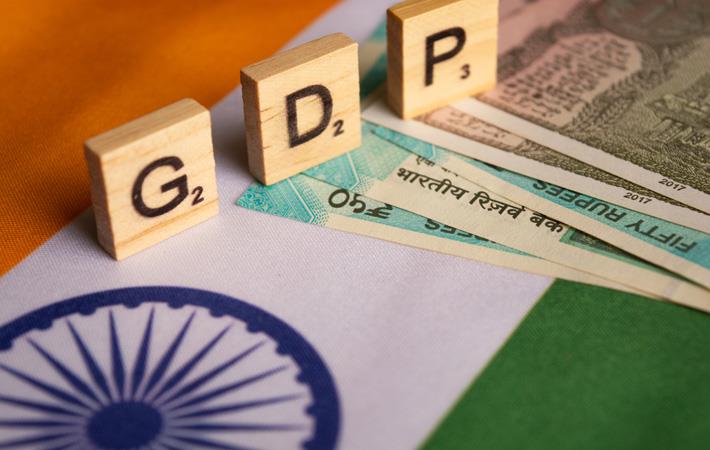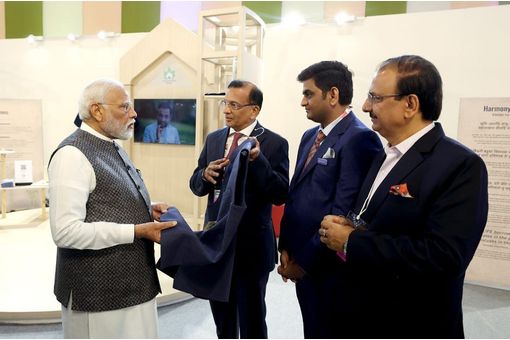Interviews
Open up India's economy for 10% growth: Panagariya
27 Feb '20
3 min read

Pic: Shutterstock
India's slowdown has bottomed out and now its economy needs to be opened up if the country wants to realise the ambition of a 10 per cent growth rate, according to former NITI Aayog vice chairman and professor of economics at the Columbia University Arvind Panagariya, who recently delivered the keynote address at a discussion in New York on India's budget.
In the next fiscal, India's gross domestic product (GDP) growth is expected to be 6 per cent and then it will get back to 7-8 per cent, which has been the case in the last 15 years, he was quoted as saying by a news agency report.
"In the second half of the current fiscal year, which would be ending on March 31, we should see some bit of recovery, not a big one but certainly the second half (of the fiscal year) should look better than the first half," he said.
The discussion was organised by India's Consulate General in partnership with the US-India Strategic Partnership Forum (USISPF). Panagariya noted that since about 2003, India has been growing at an average rate of about 7 per cent and the first five years of the Modi government was characterised by 7.5 per cent growth on an average.
Emphasising that the Indian economy "can do a lot better no doubt", he said that in his assessment, the main factor that led to the slowdown has to do with the financial markets and that translated into weakening of the balance sheets of both the banks as well as corporations.
"I think you could criticise the government here for being a little slow in beginning the process of cleaning up of the bank non-performing assets (NPAs). The problem was known actually by 2013... but this particular problem of NPAs never gets solved very quickly," he said. He said as the clean up happens, "we should see the growth returning".
On the Budget, Panagariya welcomed positive steps taken by the government including on fiscal consolidation, fiscal deficit, corporate tax reduction, initiation of simplification for the personal income taxation as well as privatisation.
He said something that has been going on for the last two to three years is that India is turning more and more towards import substitution. "Trade economists use a more aggressive term - protectionism. And I've been saying that this is something that should not only be stopped but has to be reversed,” he said.
If a country with a 500 million-people strong labour force cannot compete in the labour intensive products, it points to the fact that something is fundamentally wrong with the way some of the degradation in the system is, he added.
In the next fiscal, India's gross domestic product (GDP) growth is expected to be 6 per cent and then it will get back to 7-8 per cent, which has been the case in the last 15 years, he was quoted as saying by a news agency report.
"In the second half of the current fiscal year, which would be ending on March 31, we should see some bit of recovery, not a big one but certainly the second half (of the fiscal year) should look better than the first half," he said.
The discussion was organised by India's Consulate General in partnership with the US-India Strategic Partnership Forum (USISPF). Panagariya noted that since about 2003, India has been growing at an average rate of about 7 per cent and the first five years of the Modi government was characterised by 7.5 per cent growth on an average.
Emphasising that the Indian economy "can do a lot better no doubt", he said that in his assessment, the main factor that led to the slowdown has to do with the financial markets and that translated into weakening of the balance sheets of both the banks as well as corporations.
"I think you could criticise the government here for being a little slow in beginning the process of cleaning up of the bank non-performing assets (NPAs). The problem was known actually by 2013... but this particular problem of NPAs never gets solved very quickly," he said. He said as the clean up happens, "we should see the growth returning".
On the Budget, Panagariya welcomed positive steps taken by the government including on fiscal consolidation, fiscal deficit, corporate tax reduction, initiation of simplification for the personal income taxation as well as privatisation.
He said something that has been going on for the last two to three years is that India is turning more and more towards import substitution. "Trade economists use a more aggressive term - protectionism. And I've been saying that this is something that should not only be stopped but has to be reversed,” he said.
If a country with a 500 million-people strong labour force cannot compete in the labour intensive products, it points to the fact that something is fundamentally wrong with the way some of the degradation in the system is, he added.
Fibre2Fashion News Desk (DS)
Popular News
Leave your Comments
Editor’s Pick
Rohit Dev Sethi
ColossusTex Private Limited
S. Chendhuran
SP Retail Ventures Limited
Anita Dongre & Yash Dongre
House of Anita Dongre Limited
































-Ltd..jpg?tr=w-120,h-60,c-at_max,cm-pad_resize,bg-ffffff)





.jpg?tr=w-120,h-60,c-at_max,cm-pad_resize,bg-ffffff)
.jpg?tr=w-120,h-60,c-at_max,cm-pad_resize,bg-ffffff)






